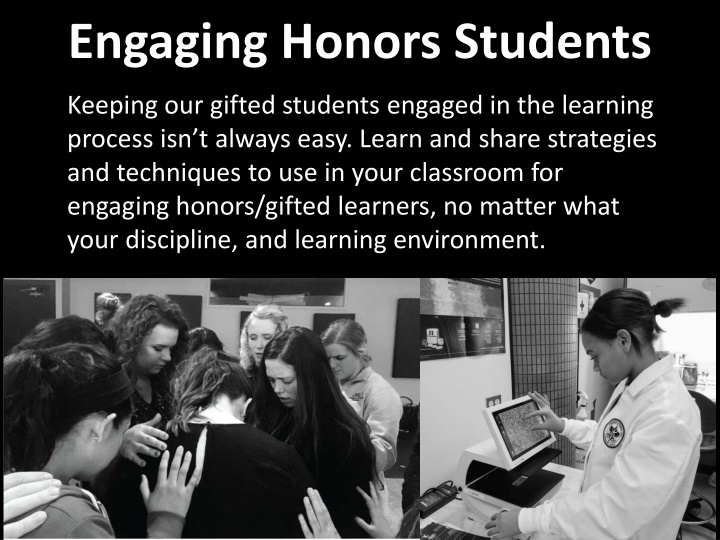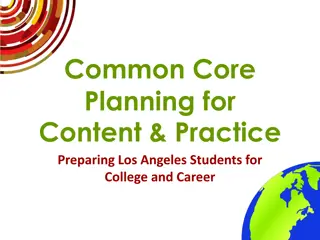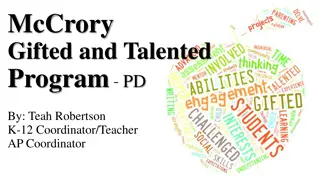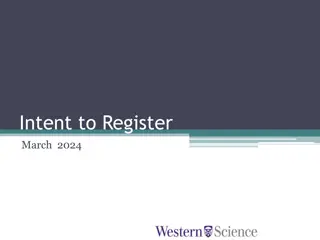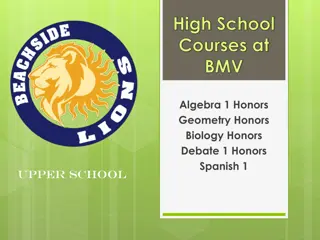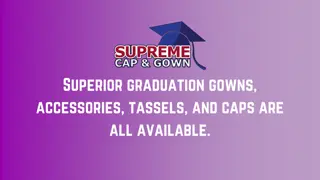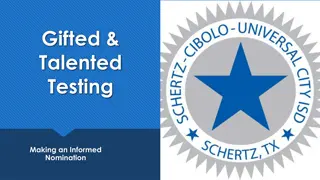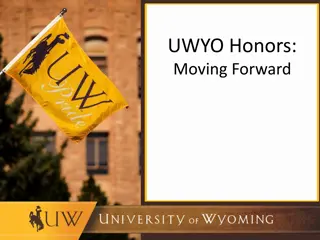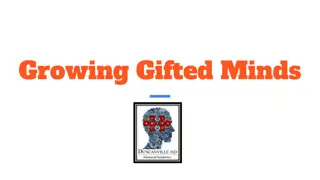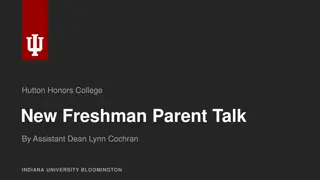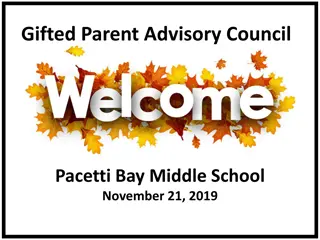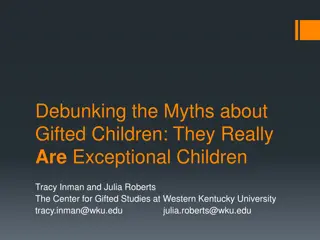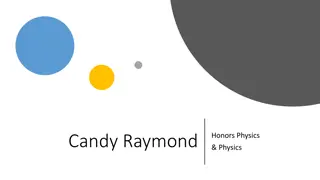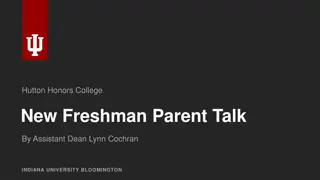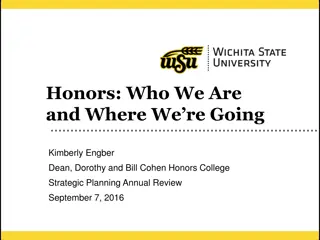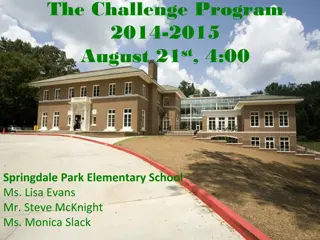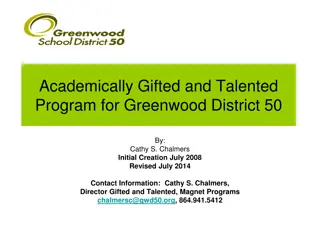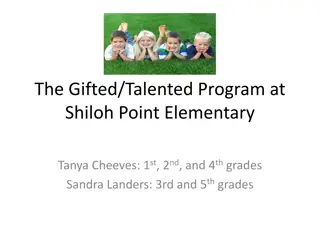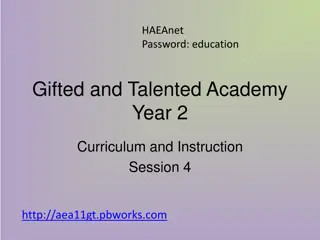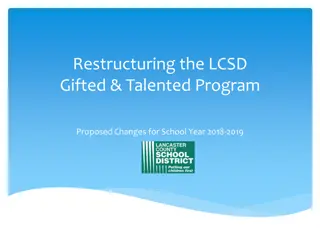Engaging Honors Students: Strategies for Gifted Learners
Keeping our gifted students engaged in the learning process is crucial. Explore techniques and approaches to effectively engage honors/gifted learners across disciplines and learning environments.
Download Presentation

Please find below an Image/Link to download the presentation.
The content on the website is provided AS IS for your information and personal use only. It may not be sold, licensed, or shared on other websites without obtaining consent from the author.If you encounter any issues during the download, it is possible that the publisher has removed the file from their server.
You are allowed to download the files provided on this website for personal or commercial use, subject to the condition that they are used lawfully. All files are the property of their respective owners.
The content on the website is provided AS IS for your information and personal use only. It may not be sold, licensed, or shared on other websites without obtaining consent from the author.
E N D
Presentation Transcript
Engaging Honors Students Keeping our gifted students engaged in the learning process isn t always easy. Learn and share strategies and techniques to use in your classroom for engaging honors/gifted learners, no matter what your discipline, and learning environment.
Honors Program Currently there are about 270 students. They are from all colleges. Percentage of HP student by Colleges COSE 45.5% CACS 17% COB 15% COTh 11.5% CON 7% COE 4%
Honors Program Many HP students represent the best of the Colleges at gradation. At last April s Academic Awards Reception, 11/59 awardees were HP Scholars or Fellows. ORU undergraduate enrollment, 3,530 HP students, about 270 Number of Non-HP Awardees, 59 Number of Awardees with HP status, 11
Honors Program Basic Philosophy: Different not more Feedback from students (thinking outside the paper): Disengaged by: Writing additional pages Engaged by: Meeting with professors Discussion-based learning Hands-on research and scholarly work HONR courses as a model
HONR Courses Began in 2001, these courses use the skeleton of their GE equivalent but expand the content with interdisciplinary foundations. General approaches: Replace heavy lecturing with more group discussion. Outside speakers. Group tasks.
Ideas for your classes Imagine that the honors student, in your class, has a major in your area: What task/project/object would you like to see from her and how might you naturally add more support in the learning process? How can a current assignment be altered to be a deeper experience with your course content? If you had a first semester graduate student in your course, how would you elevate your content and expectations?
